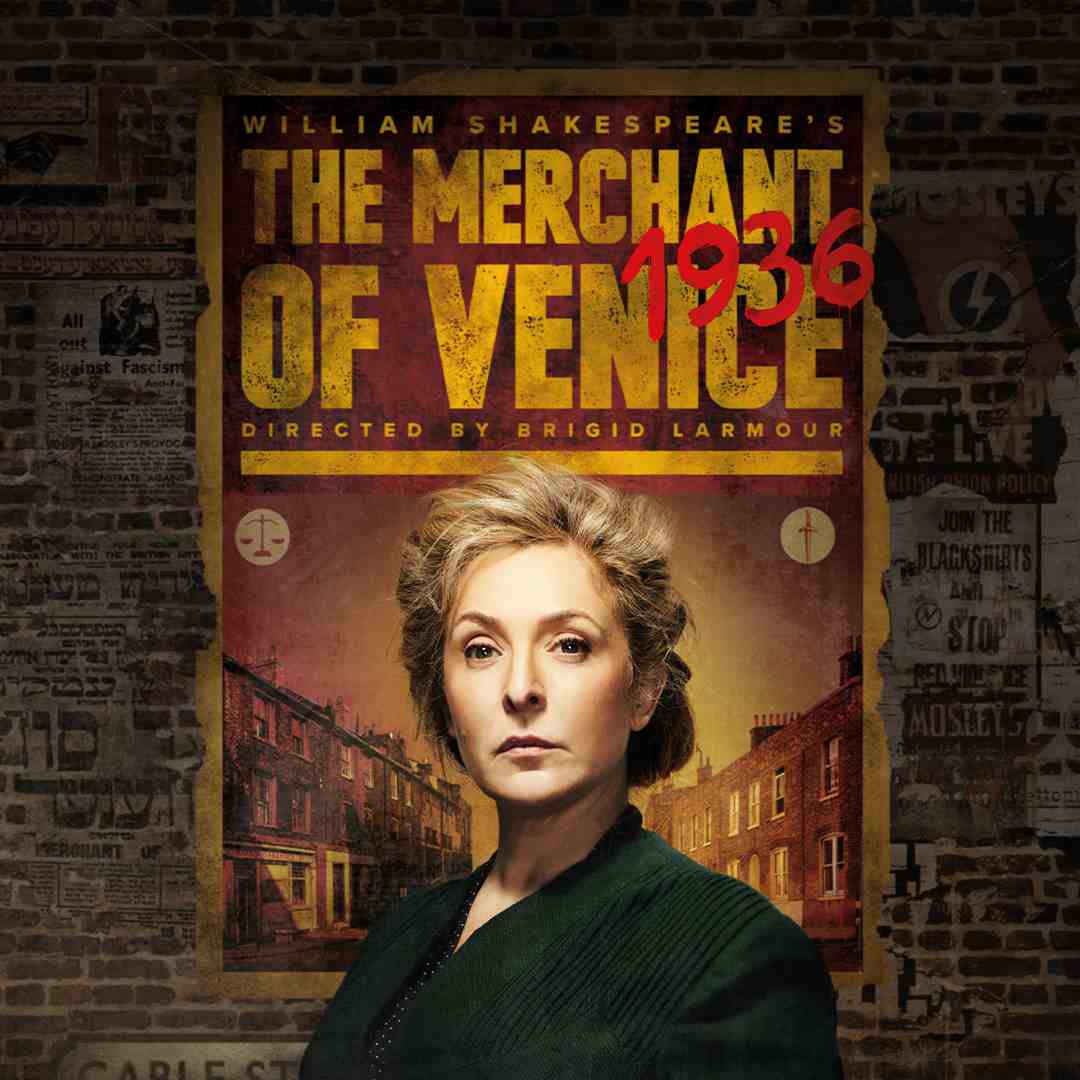'Compelling': Lord Collins reviews 'The Merchant of Venice 1936'
Tracy-Ann Oberman as Shylock | Image by: Marc Brenner
3 min read
A powerful wake-up call to the re-emergence of antisemitism in today’s society, this occasionally jarring new interpretation of Shakespeare’s controversial play menacingly portrays the reality of fascism in 1930s East End
The Merchant of Venice is not one of my favourite Shakespeare plays, as in my childhood school readings it often prompted many of the antisemitic tropes we are all too familiar with today.
The story begins with a young man, Bassanio, who seeks to win the hand of the beautiful and wealthy heiress Portia. Needing 3,000 ducats, he approaches his merchant friend Antonio who although wealthy has all his cash tied up in ships at sea. He offers to help if Bassanio can find a lender, so Bassanio turns to the Jewish moneylender Shylock and names Antonio as the loan’s guarantor.
In this excellent production, the merchant is living in 1930s east London amid the rise of Oswald Mosley’s Blackshirts. Shylock is a single mother living in Cable Street where she runs a pawnbroking business from her home. The fascists plan to goose-step through the Jewish East End and the march is scheduled to go through Cable Street.
Tracy-Ann Oberman’s Shylock is a tough-talking, no-nonsense, strong matriarch, a role shaped by her own family background. Her compelling stage presence resonates throughout the performance; she’s the star of the play and the first British woman actor to play the role.
When the antisemitic aristocrat Antonio strikes a deal on the loan, the price of failing to meet its terms is the famous pound of flesh. I must admit I felt revulsion at hearing the casual abuse of Jews. However, in this setting, her deal is a potent response to the antisemitic abuse of Antonio. Seeking justice adds complexity to the character of Shylock.
I must admit I felt revulsion at hearing the casual abuse of Jews
Antonio played by Raymond Coulthard is a Mosley lookalike Blackshirt while Portia (Hannah Morrish) is a Mitford-style socialite.
This fast-paced production moves very quickly through Liz Cooke’s brilliantly designed set, which shows the menacing, harsh reality of the 1930s East End and the Ivor Novello-type sophistication of wealthy West End society. Antisemitic headlines and graffiti flood against the East End walls. Smashed glass offstage foreshadows the Battle of Cable Street in 1936.
Other cast members are Gavin Fowler playing Bassanio, Jessica Dennis as Mary and Nerissa, Gráinne Dromgoole as Jessica, Xavier Starr as Gratiano, Priyank Morjaria as Lorenzo and Maharajah, Alex Zur as Yuval/The Duke/Balthasar/a Blackshirt and Nancy Farino as Stefania and a Blackshirt.
This play is a powerful wake-up call to the re-emergence of antisemitism in our society today.
 My only slight gripe is the ending felt just out of place. Maybe it is my age and background but I felt this climax was a little like a scene from the agitprop plays I used to encounter in the 80s. Calling up the audience on to the stage to chant “They shall not pass” – the rallying cry of the anti-fascists in the 30s – jarred with what was already a powerful and impactful play.
My only slight gripe is the ending felt just out of place. Maybe it is my age and background but I felt this climax was a little like a scene from the agitprop plays I used to encounter in the 80s. Calling up the audience on to the stage to chant “They shall not pass” – the rallying cry of the anti-fascists in the 30s – jarred with what was already a powerful and impactful play.
Tracy-Ann Oberman has explained that the inspiration for this was her great-grandmother who always reminded her that their neighbours – their Irish neighbours, the small African-Caribbean community, the dockers, the working classes – all stood together.
Maybe she’s right when she declares this scene is a demonstration of how we’re stronger, prouder, and safer together.
Lord Collins is a Labour peer
The Merchant of Venice 1936
Directed by: Brigid Larmour
Venue: Criterion Theatre, London, until 23 March
